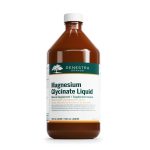Revolutionary Liquid Leakage Sensor: Safeguarding Against Unforeseen Spills!
Liquid Leakage Sensor: Detecting and Preventing Leaks with Precision
Introduction
Hello Readers,
1 Picture Gallery: Revolutionary Liquid Leakage Sensor: Safeguarding Against Unforeseen Spills!

Welcome to this informative article about the revolutionary liquid leakage sensor. In this modern era, where technology is advancing at an unprecedented pace, it is crucial to stay updated with the latest innovations that can enhance our lives. Liquid leakage sensor is one such invention that has the potential to save us from potential disasters and costly damages.

Image Source: cmrelectrical.com
In this article, we will delve into the intricacies of liquid leakage sensor, its applications, advantages, and disadvantages. By the end, you will have a comprehensive understanding of this cutting-edge technology and its role in ensuring safety and efficiency in various industries. So, let’s jump right in!
What is a Liquid Leakage Sensor?
🔎 A liquid leakage sensor, also known as a leak detector, is a device designed to detect and alert users of liquid leaks. It consists of various components, including sensors, alarm systems, and control panels, working together to identify leakages accurately and promptly.
🔎 These sensors employ advanced technologies such as conductivity, ultrasonic, and optical detection to identify the presence of liquids, regardless of their viscosity or composition.
🔎 Liquid leakage sensors are commonly used in industries such as manufacturing, water treatment plants, data centers, and residential buildings to prevent disasters caused by leaks, such as flooding, equipment damage, and electrical hazards.
🔎 With their ability to detect leaks in real-time, liquid leakage sensors play a crucial role in ensuring the safety of assets, protecting the environment, and minimizing financial losses.
🔎 Now that we have a basic understanding of liquid leakage sensors, let’s dive deeper into who can benefit from this technology.
Who Can Benefit from Liquid Leakage Sensors?
👥 Liquid leakage sensors cater to a broad range of industries and individuals, each with their unique requirements and applications. Here are some of the key beneficiaries:
1. Manufacturers: Industrial plants and factories that deal with hazardous or corrosive liquids can significantly benefit from liquid leakage sensors. These sensors can detect leaks early on, preventing accidents, equipment damage, and costly production downtime.
2. Data Centers: Data centers house valuable IT infrastructure that needs to be protected from any liquid damage. Liquid leakage sensors provide an added layer of security by instantly notifying operators of any leaks that may jeopardize critical systems and data.
3. Residential Buildings: Whether it’s a home or an apartment complex, water leakage can cause extensive damage to property, personal belongings, and pose health hazards. Liquid leakage sensors offer proactive protection, allowing residents to take immediate action in the event of a leak.
4. Water Treatment Plants: Ensuring the safety and purity of drinking water is a top priority for water treatment plants. Liquid leakage sensors help in detecting leaks in pipelines, storage tanks, or water treatment equipment, preventing contamination and ensuring water quality.
5. Facilities with Chemical Storage: Industries that handle hazardous chemicals, such as laboratories and chemical manufacturing plants, can use liquid leakage sensors to monitor potential leaks and avoid accidents, chemical spills, and health hazards.
As you can see, liquid leakage sensors have a wide range of applications and can benefit various industries and individuals. Now, let’s explore when these sensors are most commonly used.
When are Liquid Leakage Sensors Used?
🕒 Liquid leakage sensors are used in several scenarios where the timely detection of leaks is crucial. Here are some common instances:
1. Pipe Leaks: Liquid leakage sensors are extensively used to identify leaks in pipes, whether it’s in residential plumbing systems or complex industrial pipelines. Detecting pipe leaks early on can prevent water damage, reduce water wastage, and avoid costly repairs.
2. Tank Leaks: Storage tanks, especially those containing hazardous substances, are prone to leaks. Liquid leakage sensors installed in tanks can immediately detect leakages and trigger alarms or shut-off valves to prevent further damage and minimize risks.
3. Appliance Leaks: Appliances that involve water, such as washing machines, dishwashers, and refrigerators, can experience leaks. Liquid leakage sensors integrated into these appliances act as a safety mechanism, shutting off the water supply and alerting users before any significant damage occurs.
4. Data Center Leaks: In data centers, liquid leakage sensors are used to detect leaks in cooling systems, water-based fire suppression systems, and other areas where water presence can cause severe damage to servers and IT equipment.
By utilizing liquid leakage sensors in these scenarios, potential disasters can be averted, and immediate action can be taken to mitigate the damages. Now, let’s explore the geographical aspect of their usage.
Where are Liquid Leakage Sensors Used?
🌍 Liquid leakage sensors are widely used across the globe, spanning multiple industries and locations. Here are some common areas of usage:
1. Industrial Settings: Liquid leakage sensors are found in numerous industries, including manufacturing plants, chemical facilities, power generation plants, and oil refineries. These sensors ensure safety, prevent equipment damage, and maintain operational efficiency.
2. Residential Buildings: Liquid leakage sensors are becoming increasingly popular in residential buildings, where they offer an additional layer of security against water damage. These sensors are commonly installed in basements, bathrooms, kitchens, and utility rooms.
3. Commercial Buildings: Office complexes, shopping malls, and hotels can benefit from liquid leakage sensors to protect their infrastructure, prevent disruptions, and provide a safe environment for employees and customers.
4. Data Centers: As mentioned earlier, data centers house critical IT infrastructure, making them high-risk areas for liquid damage. Liquid leakage sensors are extensively used in data centers worldwide to safeguard servers and prevent costly downtime.
Whether it’s an industrial facility, a residential building, or a commercial space, liquid leakage sensors find their applications in various locations, ensuring safety and preventing potential damage. Now, let’s address the most crucial question: why should one invest in liquid leakage sensors?
Why Invest in Liquid Leakage Sensors?
💰 Investing in liquid leakage sensors offers numerous benefits that outweigh the initial cost. Here are some compelling reasons to consider:
1. Proactive Leak Detection: Liquid leakage sensors enable proactive leak detection, allowing you to address leaks before they cause significant damage. By minimizing the damages, you can save a substantial amount on repairs and replacements.
2. Early Warning System: These sensors act as an early warning system, providing alerts and notifications when a leak is detected. This gives you valuable time to take necessary action and prevent further escalation.
3. Enhanced Safety: Liquid leakage sensors play a crucial role in ensuring the safety of your property, assets, and occupants. By detecting leaks promptly, you can prevent accidents, electrical hazards, and health risks.
4. Cost Savings: The financial implications of a leak can be substantial, including repair costs, equipment replacements, and increased insurance premiums. By investing in liquid leakage sensors, you can mitigate these expenses and protect your bottom line.
5. Environmental Responsibility: Leaks can have a detrimental impact on the environment, especially when it comes to hazardous liquids. Liquid leakage sensors help in preventing such leaks, reducing environmental pollution, and promoting sustainability.
By considering the advantages mentioned above, it becomes evident that investing in liquid leakage sensors is a prudent decision that can save you from potential disasters and financial losses. However, it is essential to be aware of the disadvantages or limitations associated with this technology as well.
Advantages and Disadvantages of Liquid Leakage Sensors
👍 While liquid leakage sensors offer numerous benefits, it is important to be aware of their limitations. Here are some advantages and disadvantages:
Advantages:
1. Accurate Leak Detection: Liquid leakage sensors provide accurate and reliable leak detection, ensuring prompt action can be taken.
2. Versatile Applications: These sensors have a wide range of applications and can be used in various industries and settings.
3. Cost-Effective: Investing in liquid leakage sensors can save money in the long run by preventing costly damages and repairs.
4. Easy Installation: Most liquid leakage sensors are designed for easy installation, making the setup process hassle-free.
Disadvantages:
1. False Alarms: In some cases, liquid leakage sensors may generate false alarms due to factors such as condensation or environmental changes.
2. Maintenance: Like any other technology, liquid leakage sensors require regular maintenance to ensure optimal performance.
3. Limited Coverage: Depending on the size of the area or system being monitored, liquid leakage sensors may have limitations in coverage.
4. Initial Investment: While the long-term benefits are substantial, the initial cost of purchasing and installing liquid leakage sensors can be a deterrent for some.
It is important to weigh these pros and cons when considering the implementation of liquid leakage sensors in your specific context. Now, let’s address some frequently asked questions to provide further clarity on the topic.
Frequently Asked Questions (FAQ)
1. Are liquid leakage sensors waterproof?
Yes, liquid leakage sensors are designed to be waterproof. They are built to withstand exposure to liquids and operate reliably in various environments.
2. Can liquid leakage sensors detect all types of liquids?
Liquid leakage sensors are capable of detecting a wide range of liquids, including water, chemicals, oils, and more. The detection mechanism varies based on the technology employed by the sensor.
3. Can liquid leakage sensors be integrated with existing alarm systems?
Yes, liquid leakage sensors can be integrated with existing alarm systems. This allows for centralized monitoring and enhanced security measures.
4. How often should liquid leakage sensors be tested?
It is recommended to test liquid leakage sensors regularly, at least once every six months, to ensure their proper functioning. Additionally, sensors should be checked after any maintenance or repair activities.
5. Can liquid leakage sensors be used outdoors?
Yes, there are liquid leakage sensors specifically designed for outdoor use. These sensors are built to withstand harsh weather conditions and provide reliable leak detection in outdoor environments.
Conclusion
In conclusion, liquid leakage sensors are an invaluable tool for detecting and preventing leaks in various industries and settings. With their ability to provide real-time alerts, these sensors help in minimizing damages, ensuring safety, and saving costs. Whether it’s a residential building, an industrial facility, or a data center, investing in liquid leakage sensors can provide peace of mind and safeguard valuable assets.
We hope this article has provided you with valuable insights into the world of liquid leakage sensors. Stay informed, stay safe, and make informed decisions to protect what matters most. Thank you for reading!
Final Remarks
Disclaimer: The information provided in this article is for educational purposes only. The use of liquid leakage sensors should be based on individual requirements and professional advice. The author and the website are not responsible for any damages or losses incurred through the implementation or use of liquid leakage sensors.
Table: Complete Information about Liquid Leakage Sensor
Parameter
Description
Type
Electronic device
Working Principle
Conductivity, ultrasonic, or optical detection
Applications
Manufacturing, data centers, residential buildings, water treatment plants
Benefits
Proactive leak detection, early warning system, enhanced safety, cost savings
Disadvantages
False alarms, maintenance requirements, limited coverage, initial investment
FAQ
Answers to common questions about liquid leakage sensors
This post topic: Liquid

